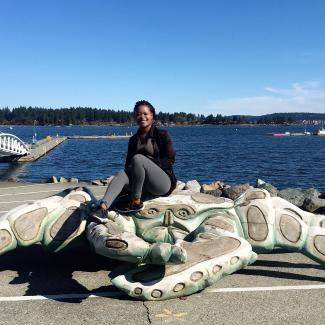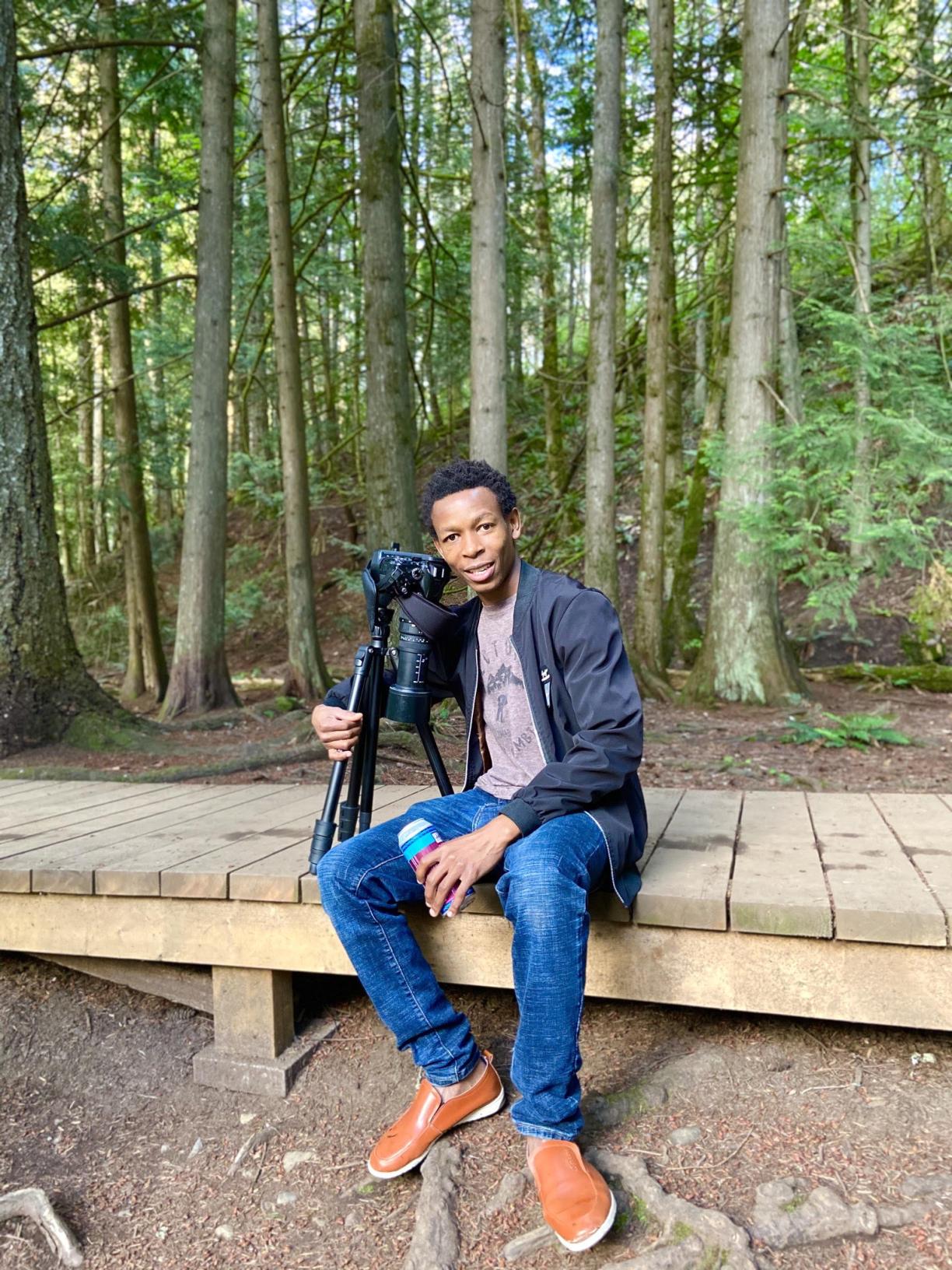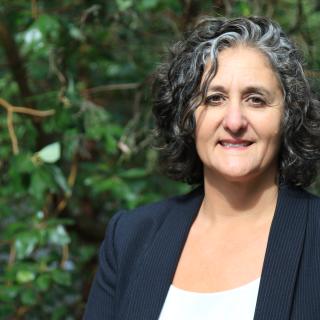VIU Master of Sustainable Leisure Management graduates conducted their research remotely this year due to the pandemic.
The three final international participants of Vancouver Island University’s (VIU’s) Queen Elizabeth Scholarship (QES) program will graduate this summer – marking the beginning of the final year of the program.
After graduating from the College of African Wildlife Management in Mweka, Tanzania, Brighton Mbilinyi, Patricia Kayaga and Whitney Lyimo heard through their mentors about an opportunity to study abroad at VIU. This marked the beginning of their journey to becoming QES recipients in 2019, and eventually becoming graduates of VIU’s Master of Arts in Sustainable Leisure Management program in 2021.
After arriving at VIU in 2019, each scholar decided on their own research topic within the broader VIU QES project theme of Building Resilience in Coastal Communities. Just a few months into their studies, COVID-19 forced students into remote learning and challenged them to reframe their research topics and methodology to complete their research completely online. This was no small task for the students, who were trying to conduct research in their home communities in Tanzania from afar.
Mbilinyi explored the role of safari tour guides in Tanzania; Lyimo explored the factors that helped women occupy tourism positions typically filled by men; and Kayaga explored destination narratives created and shared by the Kenyan and Tanzanian tourism authorities during the COVID-19 pandemic.
“It was important for each student to focus on Tanzania and something that impacts the tourism industry and the sustainability of tourism in Tanzania.” – Dr. Aggie Weighill, academic supervisor and a VIU Recreation and Tourism Professor.
Mbilinyi, who plans to work on a PhD next, discovered that safari guides are an important element for advocating for sustainability in the tourism industry.
“My research explored the major roles and responsibilities of safari guides, but also explored the challenges hindering safari guides from acting in a responsible, sustainable way,” he says.
Mbilinyi appreciated the welcoming, interactive learning approach and the many supportive resources at VIU, including a full library and field trips for learning labs.
“My two years at VIU were not only an opportunity to learn, but they also contributed to my overall lifetime experience, which will never be forgotten,” he says.

Kayaga compared how the Kenyan and Tanzanian tourism authorities created and shared their narrative through social media during the pandemic. She appreciated the multicultural and supportive learning environment at VIU. After finishing her thesis, Kayaga hopes to explore some tourism opportunities in Kamloops, where she currently resides, before she returns home to Tanzania to share the knowledge she has gained while completing her master’s degree.
“It’s all about giving back to the communities,” she says.
Lyimo also completed a thesis as part of the MASLM program.
“My thesis aims to reveal different facilitators for women’s careers, which are part of the social context,” she says. “I conducted research that I believe honours the women of Tanzania and influences radical changes in gender equality. I have been able to share my knowledge about sustainable tourism and support women’s initiatives within tourism in Tanzania.”
During her studies, Lyimo says she enjoyed the small class sizes at VIU.
“They enabled more direct contact with professors and classmates and gave me a very interactive learning environment,” she says.
When she returns to Tanzania, Lyimo will continue to share her knowledge about sustainability with women in different organizations.
“I am looking forward to sharing my research with important tourism stakeholders in Tanzania who might have an impact on the demands within the tourism industry,” she says.
Weighill believes the research the QES scholars have been doing here in Canada has the potential to impact academic teachings, tourism policy and the ways tourism operates in Tanzania.
“One of the most significant contributions that Brighton, Patricia and Whitney could make in the future is to take new information and methods of learning back to Tanzania. These three are critical thinkers who wish to be changemakers and I am sure that when they return to Tanzania, they will impact their communities greatly.”

While graduation is on the horizon, the path to success for the Tanzanian scholars has been far from smooth. In addition to the anticipated highs and lows and stressors of any graduate program, COVID-19 has had a particularly profound impact on the scholars.
“Their success is quite remarkable when you consider the challenges they have overcome over the past year,” says Jennifer Sills, Manager of Education Abroad and the QES program at VIU. “They have truly embodied our theme of Building Resilience. They have been challenged to reframe their research due to COVID-19, adapt to remote learning, and have been separated from their families and loved ones far longer than anticipated due to the complexities of the global pandemic. Their success is a beautiful testament to their dedication and passion in their academic pursuits, but also to their home communities in Tanzania.”
With Mbilinyi, Kayaga, and Lyimo preparing to graduate this summer, QES opportunities for international students at VIU are now complete. However, QE scholarship opportunities for Canadian students from VIU have been extended to 2022. Funding is available for outbound students to complete three-month international internships in Commonwealth countries pending the easing of current travel restrictions. Application details will be available in fall 2021. Visit https://qes.viu.ca/ for eligibility information and application packages.
-30-
Media Contact:
Eric Zimmer, Communications Officer, Vancouver Island University
C: 250.618.7296 |E: Eric.Zimmer@viu.ca T: @VIUNews
About QES
The Queen Elizabeth Scholarship (QES) Program was initially developed in celebration of Queen Elizabeth’s Diamond Jubilee to improve global talent exchange between Canada and other nations. The program aims to develop the next generation of innovative leaders and community builders by providing enriched academic, professional, and cross-cultural experiences and by facilitating lasting local and global community engagement. It is administered through Universities Canada, The Rideau Hall Foundation and Community Foundations of Canada. Additional partners that have made extensive contributions to the VIU QES program include the Parksville-Qualicum Community Foundation, Nanaimo Community foundation, K’omoks First Nation, University of Belize, World Leisure Centre of Excellence (VIU), and numerous community organizations in Belize and Tanzania.
About MASLM
The Master of Arts in Sustainable Leisure Management (MASLM) allows leaders the opportunity to explore and apply innovative solutions to sustainability challenges in the global context. Students are instructed by VIU faculty, international scholars from the World Leisure Organization and recognized leaders in sustainable development. In today’s climate, all industries must examine and enhance their sustainability practices. This requires innovative thinking and leadership to bring about change. This two-year program starts with an eight-month residency for coursework in Nanaimo. Students then participate in an applied field experience and complete a research thesis.
About BRiCC
VIU’s Building Resilience in Coastal Communities project (BRiCC) provides QES scholarship funding and supports experiential learning opportunities for VIU students to collaborate on innovative solutions to the pressing issues facing coastal communities in Canada and around the world. The project’s goals are to improve capacity to foster sustainable economic activity, particularly tourism; enhance management of water in coastal zones, including drinking water; develop and manage parks and protected areas in or near coastal communities; enhance coastal communities’ response to climate change; and develop sustainable aquatic foods and local agricultural production. Since the beginning of the BRiCC program in 2015, VIU has facilitated QES funding for 10 international scholars from Belize and Tanzania to complete master’s degrees in Community Planning, GIS Applications and Education. To date, 10 Canadian graduate scholars and 19 Canadian undergraduate interns have travelled abroad to Belize, Tanzania, South Africa and Vietnam with funding through the QES program.


